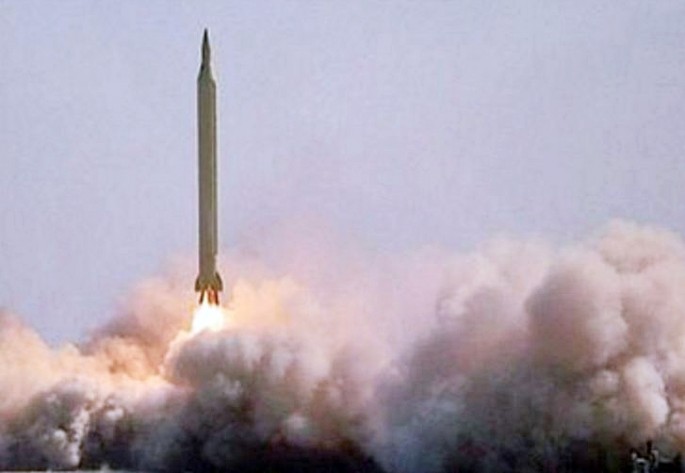Iran denies the unsuccessful test of what appears to be its first intermediate-range ballistic missile (IRBM) in mid-January violated United Nations Resolution 2231 that forbids it from conducting tests such as these.
American and Israeli media said Iran tested the IRBM with a claimed range of 4,000 km and capable of carrying nuclear warheads during the third week of this month. The IRBM was said to have been launched from the Imam Khomeini Space Port in the city of Semnan east of Tehran.
The IRBM, which western media said was named "Khorramshahr," lifted-off successfully, but the mission was labeled a failure because of the loss of its reentry vehicle. The missile flew some 600 km before exploding.
An intermediate-range ballistic missile (IRBM) is a ballistic missile with a range of 3,000 km to 5,500 km. Iran has no operational IRBMs. Its longest ranged missile is the Fajr-3 medium range ballistic missile (MRBM) with a claimed range of 2,500 km.
There is also no missile named Khorramshahr on known lists of Iranian ballistic missiles, leading to speculation as to what kind of missile the Iranians actually tested.
Israeli Prime Minister Benjamin Netanyahu blasted the test as a "flagrant breach" of UN Security Council resolutions and demanded the re-imposition of sanctions against Iran.
Netanyahu said he would discuss with U.S. President Donald Trump a reevaluation of the "entire failed nuclear accord" the Obama Administration and other P5+1 countries agreed with Iran in 2015
For its part, Iran argued that because the nuclear accord forbids them from developing a nuclear weapon, this means that no Iranian ballistic missile is capable of carrying a nuclear warhead. Therefore, there isn't a violation of the 2015 nuclear accord since the IRBM that failed didn't carry a nuclear weapon.
UN resolution 2231, however, bars Iran from conducting ballistic missile tests for eight years. The resolution came into effect on July 20, 2015.
It also calls on Iran "not to undertake any activity related to ballistic missiles designed to be capable of delivering nuclear weapons, including launches using such ballistic missile technology."
Iran, however, did have a point when it said the deal doesn't include provisions preventing it from conducting ballistic missile tests as long as these missiles aren't designed to carry a nuclear weapon.



























